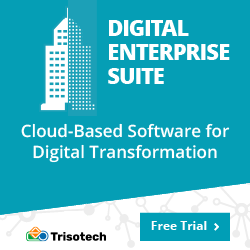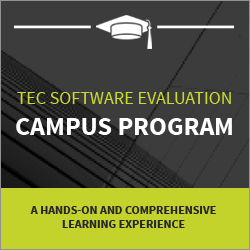Process Application Platforms 2016: Oracle
|
|
This report assesses the capabilities of Oracle’s Process Application Platform, and also examines the partners and intellectual property that Oracle can offer customers exploring associated technology implementations. This assessment report forms part of a series of reports from MWD Advisors which assesses business process application technology offerings – technology-related capabilities which support organisations wanting to design, develop, deploy, monitor and optimise partially- or wholly-automated business processes.
We strongly encourage you to read this report in conjunction with our accompanying Assessment Framework report at https://www.mwdadvisors.com/2016/10/25/process-application-platforms/
Summary
Oracle’s process application technology heritage may be principally in automating application integration flows, but in recent years the breadth of applicability of its process application platform has increased significantly. Now, the Oracle Process Cloud Service (PCS) is where Oracle is focusing most of its attention: it uses the same underlying technology as the on-premise Oracle BPM Suite, but is packaged and delivered in a way that significantly simplifies the experience of designing, building and deploying process applications. Recent months have seen further investment in design simplicity and quick-start capabilities, particularly for PCS. We’d now like to see some more cross-fertilisation of capabilities across PCS and Oracle BPM Suite.
Support for different types of work
Automated work: Automated work is Oracle’s heritage in the process application space, and the ease of combining with the Oracle SOA Suite (on-premise) or the Oracle Integration Cloud Service makes for a strong foundation. Sophisticated error handling rounds out the picture.
Transactional work: Separation of process management from model-based task management makes for a sophisticated platform for transactional work. The ability to drive data definition from form definition, and vice versa, is a nice touch; ‘Business Process Guides’ are another bonus, for Oracle BPM Suite customers at least.
Exploratory work: Oracle’s design-time and runtime features for Case Management applications create a very capable foundation for these kinds of work scenario. Oracle has some impressive capabilities here, although right now Oracle BPM Suite provides much more packaged, ready-to-use support in this area than PCS does.
Rapid prototyping / quick-start
The Oracle Process Cloud Service (PCS) now includes a rapid prototyping/quick start capability called QuickStart Apps, which enables developer teams to build and manage libraries of ‘master’ applications that can be very quickly customised to suit particular process needs.
Change management
Oracle provides an environment for process automation projects that goes a long way to helping you minimize the costs associated with designing, deploying and changing processes. Although the tools available with Oracle BPM Suite and PCS are different, both platforms provide very solid capabilities.
User experience options
The user experience options offered by Oracle differ a little depending on whether you choose to use Oracle BPM Suite or PCS. Both platform alternatives provide the web-based Workspace user experience as the default, as well as supporting the native mobile app Oracle Process Mobile. However where PCS supports embedding of process application functionality through a set of jQuery components as well as a REST API, with Oracle BPM Suite only the REST API is available. There’s also more sophistication in the use of email for action with PCS than there is with Oracle BPM Suite today.
Deployment options
As mentioned briefly above, Oracle offers two variants of its Process Application Platform: Oracle Process Cloud Service (PCS) and Oracle BPM Suite. PCS is built on the same underlying technology foundation as BPM Suite, but currently goes significantly further in terms of simplified tooling and packaging.
Inside Oracle’s platform
Oracle’s BPM technology offering spans the Oracle Process Cloud Service and the Oracle BPM Suite product bundle.
Key tools and capabilities
If you choose to work with the current version of Oracle BPM Suite (12c) you’ll receive:
- Business Process Composer. A web-based process design environment aimed at helping non-technical stakeholders (for example business analysts) participate in process improvement and collaboration with IT directly without having to use developer tools. As well as mapping processes, Business Process Composer can also ‘play back’ incomplete process application designs in the browser interactively; perform process simulations; and be used to design task definitions and forms, business objects, simple integration specifications and business rules. Business Process Composer also includes some business architecture capability for customers wanting to model the ‘bigger picture’ that provides the context for BPM projects and programs.
- Studio. An integrated Oracle JDeveloper-based process design and development toolset which offers process, organisation, and information model and user interface design and simulation functionality along with Oracle Business Rules Whereas Composer is optimized for the needs of non-technical specialists, Studio is optimized for developers needing to specify advanced integration functionality and other functionality particularly required for automated work scenarios.
- Enterprise Manager. Oracle BPM Suite 12c, just like all other Oracle technologies, uses Oracle Enterprise Manager (EM) as its technical administration and monitoring tool. From within EM, administrators can monitor and manage the BPM runtime engine and its components, together with deployed projects.
- Process Analytics. An analytics environment for exploring standard historical process metrics as well as process specific business indicators (modelled as part of process definition). It also enables process participants to create their own dashboards on top of these cubes. Process Analytics is integrated with Oracle Business Activity Monitoring (BAM) for real-time event based dashboarding.
By purchasing Oracle BPM Suite, customers will also gain access to the following:
- Oracle Business Activity Monitoring (BAM). This provides a graphical environment for administrators and analysts to use to explore real-time process and case performance, and has been significantly enhanced in its new 12c version. It’s designed to work across Oracle’s broader middleware and applications portfolio and is not limited to use with Oracle BPM Suite. A new design tool, BAM Composer, significantly eases the process of designing BAM
- Oracle Business Rules. A business rules definition tool, repository and runtime execution engine. With Oracle Business rules in place alongside Oracle BPM, customers can design a clear separation between business rules and business processes, and drive independent change cycles for each. As of Oracle BPM Suite 11g, the design environment for Oracle Business Rules is now an integrated part of both Composer and Studio.
- Oracle SOA Suite. Oracle’s Enterprise Service Bus (ESB) product is found here. This provides JDeveloper-based tooling to enable you to expose, manage and co-ordinate communications between existing systems, databases and applications exposed as services. SOA assets (existing SOA services, bus instances, and so on) are easily discoverable and usable within Oracle BPM tools; and Oracle BPM processes can easily be published to Oracle SOA Suite with automatically-generated service interfaces.
- Oracle WebCenter. A limited-use license of Oracle WebCenter is provided as part of the Oracle BPM Suite. As well as providing the Process workspace that by default will host your process applications’ user interfaces, it includes Web content management (via the 2011 FatWire acquisition), document management, digital asset management and records and retention management (via the 2006 Stellent acquisition in 2006) and these capabilities can be easily exposed through your process application user interfaces to enable documents managed within Oracle WebCenter to be associated with process instances and cases.
If you choose PCS, the toolset you use will be significantly simplified. There are just two separate environments:
- Composer. This provides a superset of the functionality found in Business Process Composer above, and is used by designers to specify and build process models, rules, forms and dashboards for cloud-based process applications.
- Workspace. Like Process Spaces (above), this technology provides the hosting environment for process participants to select and complete tasks, and for administrators to administer, monitor and fix running process instances. A Workspace mobile app delivers Oracle Process Cloud applications’ responsive web user interfaces to mobile devices, and adds offline working capabilities.
User experience options
As mentioned above, the default user experience for your process applications, whether you’re using Oracle BPM Suite or PCS, will be the responsive HTML and Javascript-based Workspace interface (though the details of how your applications look will be slightly different).
For mobile process application use, Oracle delivers a generic mobile client for your Oracle BPM Suite or PCS applications called Oracle Process Mobile; it’s available on iOS and Android phones and tablets. This provides task list and form user interfaces, integrates with devices’ native capabilities (cameras, geolocation etc) and also – crucially – provides an ‘offline mode’ that enables process participants to launch and complete tasks even when there’s no mobile connectivity.
As well as Workspace and Oracle Process Mobile, you have a couple of other options:
- Whether you’re using Oracle BPM Suite or PCS, then you have the ability to use a comprehensive REST API to build custom web experiences and apps and ‘hook into’ your process applications to present task forms, initiate actions, and so on.
- If you’re using PCS, you can use a new ‘embeddable apps’ capability that makes PCS application widgets available as jQuery components for you to embed in your own custom web experiences.
- If you’re using PCS, you can configure task notifications to send out ‘actionable emails’ that enable task workers to initiate actions within your process application (such as approving a request, for example) directly from email, without having to login to the application.
Deployment options
Rather than offering the on-premise Oracle BPM Suite as a cloud-based service, Oracle’s principal cloud push for process application platforms is a separate (but related) offering. Leveraging much of the Oracle BPM Suite technology under the covers, nevertheless Oracle Process Cloud Service (PCS) is significantly streamlined and simplified in how developers, administrators and process workers interact with it and the applications you create with it. PCS is delivered via the Oracle Cloud Platform, which today is available in 22 regions across North America, Europe, Asia, Latin America and the Asia-Pacific region.
Oracle now cites ‘hundreds’ of PCS customers. The majority of customers using an Oracle Process Application Platform currently use the on-premise Oracle BPM Suite, but PCS deployments are growing much faster.
>>> There’s more to this report, but you don’t currently have a subscription to read it.
Do you already have membership (like 6,500+ others)? If so, make sure you’re logged in.
 >>> For free articles, Sign up for a free membership.
>>> For free articles, Sign up for a free membership.
 >>> For access to 120+ Premium articles, you’ll need Individual Premium membership, or get access through a Corporate subscription.
>>> For access to 120+ Premium articles, you’ll need Individual Premium membership, or get access through a Corporate subscription.
Get started with a 7-day free trial now!
The post Process Application Platforms 2016: Oracle appeared first on The Advisor.
Leave a Comment
You must be logged in to post a comment.








